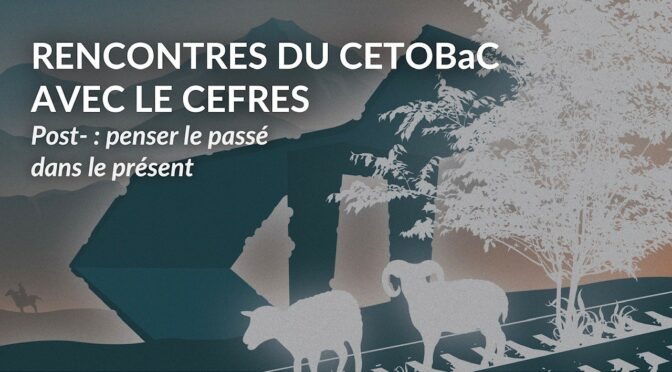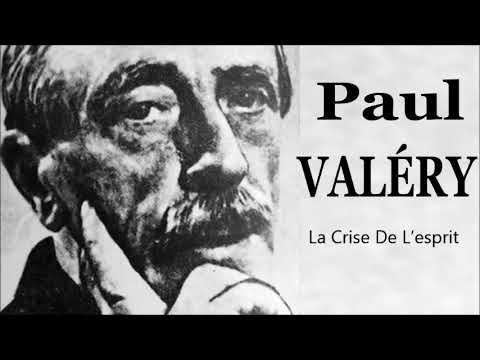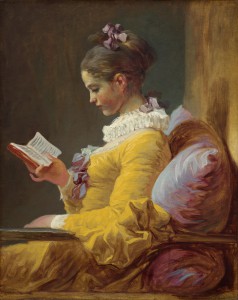In 2024, the French Center for Research in Humanities and Social Studies (CEFRES) together with the institution reunited by its Platform – Charles University and the Czech Academy of Sciences will be CETOBaC’s guest during a one-day workshop.
Date: April 26 2024, 9 am–7 pm CET
Location: CETOBaC, Campus Condorcet, 14 cours des Humanités, Aubervilliers (Bât. recherche Nord, room 0.010)
Language: English, French
Organizers: Mateusz Chmurski (CEFRES), Lucie Drechselová (CETOBaC, EHESS), Fabio Giomi (CETOBaC, EHESS)
Partner Institutions: CETOBaC, EHESS / CEFRES
Program
9:00 – 9:15 – Greeting word
09:15 – 09:30 – Introduction
Marc Aymes, Center for Turkish, Ottoman, Balkan, and Central Asian Studies (CNRS / EHESS, CETOBaC)
Mateusz Chmurski, French Center for Research in Social Sciences (CEFRES)
09:30 – 11:00 – ‘Post-’. Thinking the Present Through the Past
Moderator: Emmanuel Szurek (EHESS, CETOBaC)
- Adrian Brisku (Charles University / Ilia State University), Imperial Political-Economic Legacies in New (Inter)national Economic Order: Albania, Czechoslovakia, and Georgia’s Foreign Trade Discourse and Policy after the Great War
- Václav Šmidrkal (Czech Academy of Sciences / Charles University), ‘Post-’ and ‘Trans-’: the Legal Status of World War II veterans in Czechia after 1989
- Jelena Božović (CEFRES / Charles University), Languages in a post-conflict multiethnic society: The interplay of official and unofficial policies in Bosnia and Herzegovina
11:00-11:30 – Break
11:30-13:00 – Memories. Reflecting on the Past in the Present
Moderator: Lucie Drechselová (CETOBaC, EHESS)
- Marie Černá (Czech Academy of Sciences), The Czechoslovak Prague Spring of 1968 from the point of view of local communist actors
- Anna Huláková (Charles University), Situated Knowledge, Feminist Frameworks of Analysis and Women’s Representation in the Post-Soviet Central Asia
- Camille Leprince (EHESS, CETOBaC), La guerre d’Espagne comme représentation de l’escalade de violence en Syrie
13:00-14:30 – Lunch break
14h30-16h00 – Reflecting on Genocidal and Mass Violence: Yesterday, Today
Moderator: Xavier Bougarel (CNRS, CETOBaC)
- Elif Karakaya (Rochester University / CETOBaC), Unfinished Empire: Place and Memory in Post-Ottoman Visual Art
- Kateřina Králová (Charles University), Holocaust Ruins: Ethnography of Hirsch quarter in Thessaloniki
- Özgür Sevgi Goral (Gerda Henkel Stiftung / CETOBaC), Our Wound Runs Deep: Colonial Aphasia and the Memory Field in Turkey
16:30-18:00 – Behind the Scenes of Political Documentaries
Moderator : Ilshat Saetov (EHESS, CETOBaC)
Screening of Robert Mihály, The Best Corner in the World (2022), 25’, and screening and discussion with the director Sibil Çekmen, On the Trail of Missing Documentaries (in preparation in 2024), 14’.
18:00 – Closing cocktail
Abstract
The Center for Turkish, Ottoman, Balkan, and Central-Asian Studies (CETOBaC) at the Parisian Ecole des Hautes Etudes en Sciences Sociales (EHESS) examines the past and present situations of Turkish speaking people throughout the geographical area of Turkey, the regions that once formed part of the Ottoman Empire, and Central Asia. The Center’s work concerns not only this population group but also their relationships with their neighbors, and social, cultural, and political questions. For certain research questions, the Center extends its reach towards the east to include Iran, Afghanistan, and China, and, to the west, towards Central and Eastern Europe. CETOBaC brings together historians, sociologists, anthropologists, geographers, linguists, and political scientists in 6 research areas: History of the Ottoman Empire; Contemporary Turkey; Balkans in the Contemporary Period; Central Asia and the Caucasus; Languages, Culture and Societies in the Turkish region; Islam and Sufism.
Each year, CETOBaC organizes an annual meeting with a research institution sharing similar scientific interests: these exchanges between researchers and provide a platform for discussing our research on the Balkans, Turkey, the Ottoman Empire and Central Asia in all disciplines.
The 2024 CEFRES-CETOBaC workshop will be structured around three main themes:
- Post-Ottoman, post-Habsburg, post-socialist. Thinking the past in the present.
We will jointly explore the legacies left by the great imperial configurations that had such a profound impact on Central and Eastern European in the 19th and 20th centuries. Particular attention will be paid to how these configurations not only influenced social structure, but also organized the field of social sciences. How do we think about the categories of the multiple “post-“? How do we construct them? By looking at the situated production of knowledge, this first section will address through concepts the institutionalization of “cultural areas” in France and Central and Eastern Europe. This section continues in a successful collaboration launched by Lucie Drechselová during her fellowship at CEFRES in September 2023, that resulted in a doctoral workshop entitled “Dynamics of Political Participation: Disciplinary knowledge through the prism of ‘area studies’”.
- Memory studies.
Closely related to the first section, the second part of the day will explore memory studies. memory studies. The aim is to stimulate dialogue on current research devoted to the formation, preservation, transmission, contestation and forgetting of individual and collective memories. We will also address practices of commemoration and interpretation and interpretation of the past, as well as strategies for reconciliation and healing in post-conflict societies. This section will also examine from several angles the recurring theme of “nostalgia” that animates a multiplicity of the contexts in the post-Soviet and post-Ottoman spaces, as well as – to a lesser extent – in former Czechoslovakia.
- Social sciences in danger.
The third part of the day will take the form of a round-table discussion, focusing on the difficulties facing our disciplines, both in France, in Eastern Europe and in Turkey. We will discuss the combined effects of funding cuts and government decisions restricting academic freedom, controlling research subjects, as well as limiting the dissemination of the dissemination of potentially politically disturbing results. This debate will be followed by the screening of a documentary.

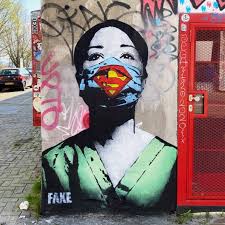
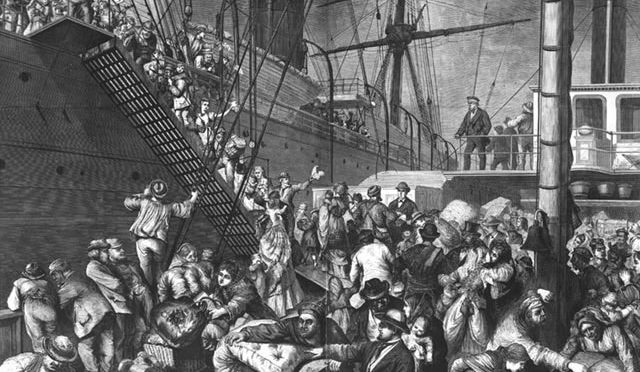

 Round table discussion about
Round table discussion about 